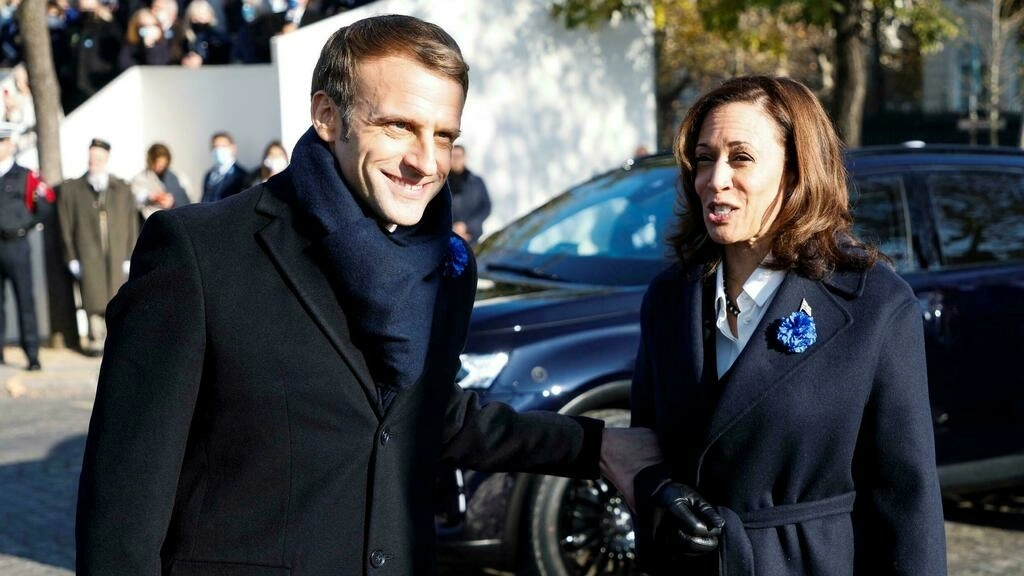French President Emmanuel Macron hosts leaders and diplomats in Paris for an international conference on Friday aimed at ensuring Libya sticks to a plan to hold elections in December and turn a new page in its history.
The hydrocarbon-rich North African country has been mired in civil war since the overthrow of dictator Moamer Kadhafi in a 2011 uprising, with the bloodshed drawing in competing Libya factions and Islamist groups, as well as regional powers.
The presidential vote on December 24, and legislative elections, are the core parts of a UN plan to help restore stability, but the calendar has been under pressure as tensions resume between rival camps.
There are also fears over whether the various factions will recognise the results of the polls, which could mark a turning point for a country that has become a major departure point for migrants seeking to cross the Mediterranean for Europe.
Key players attending the meeting will include US Vice President Kamala Harris, who is on a visit to France aimed at improving ties, and Egyptian President Abdel Fattah al-Sisi, one of Paris’s closest allies in the Middle East.
“The elections are within grasp. There is a strong momentum in Libya for them to go ahead. The stability of the country is at stake,” said a French presidential official, who asked not to be identified by name.
Earlier this week, Libya opened registration for election candidates, with speculation mounting over possible presidential bids by eastern strongman Khalifa Haftar and Kadhafi’s son Seif al-Islam, both deeply divisive figures.
The scheduling also remains unclear — presidential and parliamentary elections were both slated for December 24.
In early October, parliament then pushed back the legislative elections until January, though world powers and the UN want them held simultaneously.
Foreign forces out?
Elysee officials have been at pains to present the conference as an international effort, co-presided by France, Germany, Italy, the United Nations and Libya itself.
But it represents the latest foray into high-stakes international diplomacy by Macron, who is expected to seek re-election in April and whose country also takes on the EU presidency in January.
In May 2018, a year into his term in office, Macron also convened the key Libyan leaders for a conference in Paris where they agreed to hold elections that year.
Since then, France has faced accusations that it favoured the secular Moscow-educated Haftar in the conflict against the UN-backed government in Tripoli.
Despite French weapons being found on a base used by pro-Haftar forces in 2019, Paris has rejected the claims.
Macron wants the conference to endorse a plan for the departure of all foreign forces and mercenaries from Libya, the French presidential official said.
Turkey sent in troops as well as pro-Ankara militia units from Syria to shore up the Tripoli government.
Observers also accuse Moscow of deploying mercenaries belonging to the Wagner group, which is allegedly controlled by a close ally of Russian President Vladimir Putin.
In a rare visit to Western Europe amid tensions between Moscow and the West, Russia’s Foreign Minister Sergei Lavrov will be attending.
But in a new sign of the tense relations between Ankara and Paris, Turkey is only sending its deputy foreign minister, Sedat Onal.
Prominent absentee
Libya will be represented by Mohamed al-Menfi, the head of the transitional presidential council that carries out head-of-state functions ahead of the elections, as well as Prime Minister Abdelhamid Dbeibah.
Local media have reported that Dbeibah will be accompanied by foreign minister Najla al-Mangoush, despite her suspension by the presidential council in a move that highlighted tensions between the premier and the presidential council.
One prominent absentee is Algeria’s President Abdelmadjid Tebboune, who was invited by Paris but is staying away after taking umbrage at comments by Macron criticising his country’s “political-military system”.
The dispute prompted a rare expression of contrition from the Elysee, which said it “regretted” the misunderstandings caused by the remarks.
Foreign Minister Ramtane Lamamra welcomed the response as “respectful” and confirmed that Algerian officials would attend the conference although not Tebboune himself.

